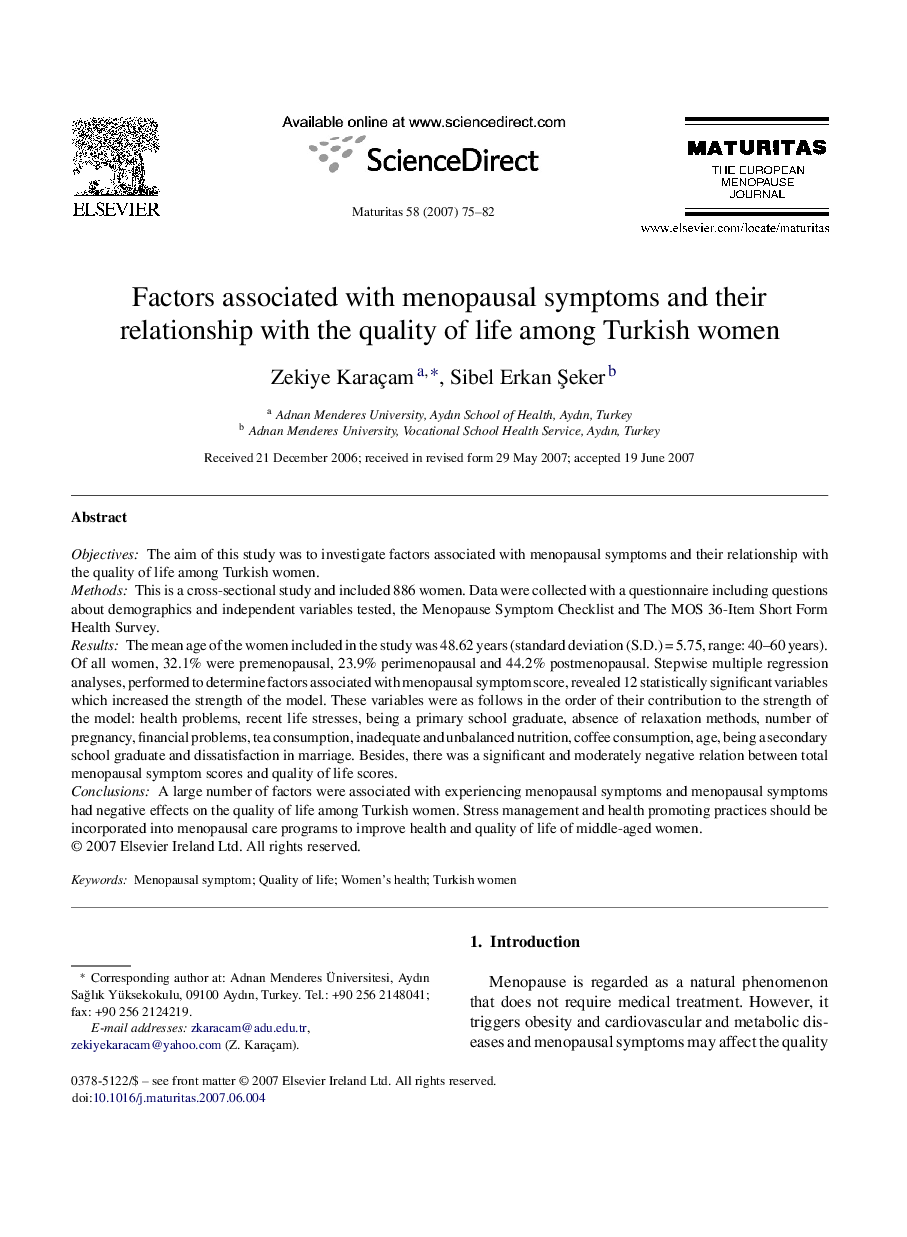| Article ID | Journal | Published Year | Pages | File Type |
|---|---|---|---|---|
| 1918710 | Maturitas | 2007 | 8 Pages |
ObjectivesThe aim of this study was to investigate factors associated with menopausal symptoms and their relationship with the quality of life among Turkish women.MethodsThis is a cross-sectional study and included 886 women. Data were collected with a questionnaire including questions about demographics and independent variables tested, the Menopause Symptom Checklist and The MOS 36-Item Short Form Health Survey.ResultsThe mean age of the women included in the study was 48.62 years (standard deviation (S.D.) = 5.75, range: 40–60 years). Of all women, 32.1% were premenopausal, 23.9% perimenopausal and 44.2% postmenopausal. Stepwise multiple regression analyses, performed to determine factors associated with menopausal symptom score, revealed 12 statistically significant variables which increased the strength of the model. These variables were as follows in the order of their contribution to the strength of the model: health problems, recent life stresses, being a primary school graduate, absence of relaxation methods, number of pregnancy, financial problems, tea consumption, inadequate and unbalanced nutrition, coffee consumption, age, being a secondary school graduate and dissatisfaction in marriage. Besides, there was a significant and moderately negative relation between total menopausal symptom scores and quality of life scores.ConclusionsA large number of factors were associated with experiencing menopausal symptoms and menopausal symptoms had negative effects on the quality of life among Turkish women. Stress management and health promoting practices should be incorporated into menopausal care programs to improve health and quality of life of middle-aged women.
